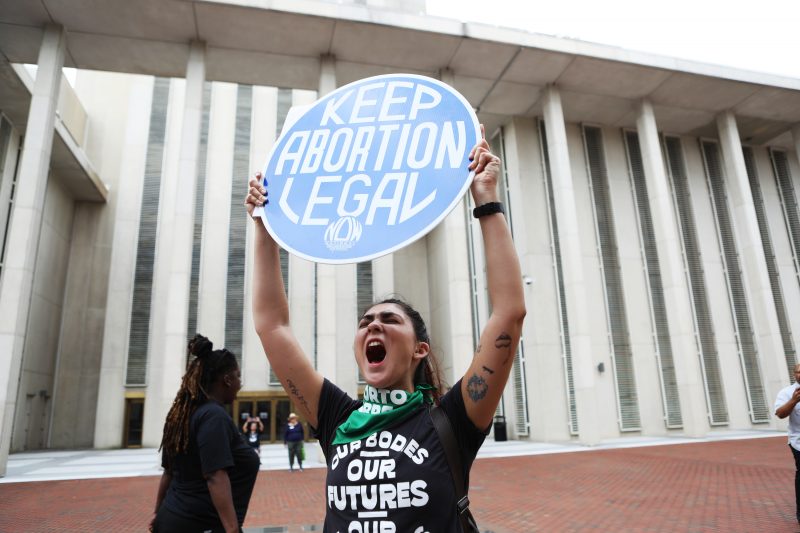A year ago Saturday, the Supreme Court presented one of the least-surprising decisions in its history: deciding for the defendant in Dobbs v. Jackson Women’s Health Organization, it would revoke the protection to abortion access that had been established by Roe v. Wade.
The lack of surprise wasn’t that the court would suddenly reverse decades of precedent — precedent that nominees for the bench more than once indicated they would respect. Instead, it was that a draft of the final opinion leaked more than a month in advance of the actual decision, a historic breach of the court’s confidence by an as-yet-unidentified perpetrator.
That lead time created an unusual scenario. Usually, significant court decisions trigger rapid shifts in policy or procedure. In the case of Dobbs, though, Americans had over a month of limbo, a period in which Roe was almost certainly doomed — but still the law of the land. It wasn’t an earthquake suddenly striking the political world but an asteroid spotted from a distance. People could only wait to see what would happen.
Half the country thinks the result was more restrictions on abortion than they had expected, according to new polling for CBS News conducted by YouGov. An additional third thinks that the new restrictions passed in the wake of Dobbs were in line with their expectations.
Most Americans also view those changes as a negative.
There are wide partisan gaps, of course. Three-quarters of Democrats say the reversal of Roe was bad for the country; two-thirds of Republicans say it was good. Independents, like Americans overall, were more likely to say that the effect was negative.
Even among independents, though, a plurality — almost half — say the post-Dobbs restrictions were more severe than anticipated. Republicans were more likely to say that the changes were more restrictive than they expected than they were to say that the changes were less restrictive, though, as we’ll see, in their view that isn’t necessarily a bad thing.
The pollsters also asked respondents who said that overturning Roe was good or bad whether their opinions were colored by various considerations.
More than half of Republicans think that it was good to overturn Roe because the unborn are being protected. Just under half say it was good because the decision recognizes conservative values.
About half of respondents, though, say overturning Roe was bad because it put health and lives at risk from reduced abortion access. That includes more than two-thirds of Democrats. Most Democrats also said overturning Roe was bad because it was a revocation of a constitutional right and because it made it easier for states to enact more restrictive laws. (In a reminder of how weird polls can be, a fifth of Democrats said that overturning Roe was good because it was a recognition of conservative values.)
You’ll notice that states making it harder to get an abortion was also a reason that almost half of Republicans viewed Dobbs as good. Overall, about a quarter of respondents said Dobbs was good because it allowed states to restrict access. Just under a half said it was bad for that same reason.
That’s the important context for the finding that a third of Republicans say that abortion access has become more restrictive than they expected. For many, that’s a pleasant surprise.
But again, they’re in the minority. There’s a reason President Biden is poised to make abortion a central component of his reelection bid: It’s an unpopular shift that is entirely attributable to his political opponents. If Donald Trump is his opponent, that argument becomes only more potent.

